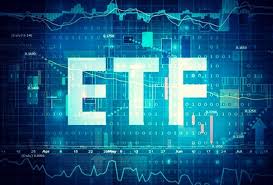 Exchange-Traded Funds, shortened to ETFs, are investment vehicles that allow investors to purchase a basket of assets in a single transaction. But do ETFs expire? Let’s take a closer look at what expiration means for ETFs and why it’s not something investors need to worry about.
Exchange-Traded Funds, shortened to ETFs, are investment vehicles that allow investors to purchase a basket of assets in a single transaction. But do ETFs expire? Let’s take a closer look at what expiration means for ETFs and why it’s not something investors need to worry about.
Table of Contents
What are ETFs?
An Exchange-Traded Fund (ETF) is an investment fund that tracks a basket of assets with a common theme, and these assets can include stocks, bonds, commodities, and more.
ETFs are often considered a cheaper and more convenient alternative to mutual funds. This is because they typically have lower fees and can be bought and sold anytime during the trading day, unlike mutual funds which can only be bought and sold at the end of the day. ETFs also offer investors greater flexibility, as they can be used to hedge against specific risks or to speculate on certain market trends.
What happens when an ETF expires?
When an ETF expires, the underlying securities are sold, and the proceeds are distributed to shareholders. ETFs are usually created with a fixed maturity date, after which they are automatically redeemed and liquidated.
The expiration date is typically several years in the future, and investors can redeem their shares at any time before expiration. When an ETF expires, shareholders will receive a pro-rata share of the net assets and fewer management fees and expenses. For example, if an ETF with a value of $100 million is liquidated and there are 10 million shares outstanding, each shareholder would receive $10.
The different types of ETFs
Many different types of ETFs are available to investors, each with its own benefits and risks.
The index fund is the most common type of ETF, which tracks a specific index such as the S&P 500. Index funds are typically highly diversified and offer low fees. Another type of ETF is the sector fund, which focuses on a specific sector such as healthcare or technology. Sector funds can be more volatile than index funds but offer higher returns.
Additionally, some ETFs focus on specific countries or regions, such as Emerging Markets ETFs. These ETFs track stocks and assets that come from emerging economies such as China, Brazil, and Mexico. They can be riskier than other types but can also provide the potential for higher returns.
Finally, there are inverse ETFs, which aim to achieve the opposite performance of the underlying index. You can use inverse ETFs to hedge against market declines but are also subject to higher fees.
Pros and cons of investing in ETFs
Exchange-traded funds (ETFs) have become increasingly popular in recent years as they offer a convenient way to invest in a wide range of assets. However, there are also some potential drawbacks before investing in ETFs.
One of the main advantages of ETFs is that they are relatively low-cost. This benefit arose because they are not actively managed, so they incur lower fees than traditional managed funds. Additionally, ETFs offer diversification benefits, allowing investors to spread their risk across a wide range of assets.
However, it is essential to note that ETFs can also be subject to market volatility, so there is always the possibility of losses. Overall, ETFs can be a helpful tool for investors, but weighing the pros and cons before making any decisions is essential.
Where can you find more information about ETFs?
Investors can consult with a financial advisor or research online for more information about ETFs. Websites such as Saxo Bank offer helpful articles and resources for learning about ETFs.
In addition, significant brokerages offer extensive research and analysis on ETFs through their website and mobile app. By learning about ETFs, investors can make more informed decisions about whether this type of investment is right for them.
At the end of the day
ETFs do not expire, but the underlying securities may. When an ETF is created, the issuer purchases a basket of securities that match the index or benchmark it is designed to track. The sponsor of the ETF will then hold on to these securities until redemption by an investor.